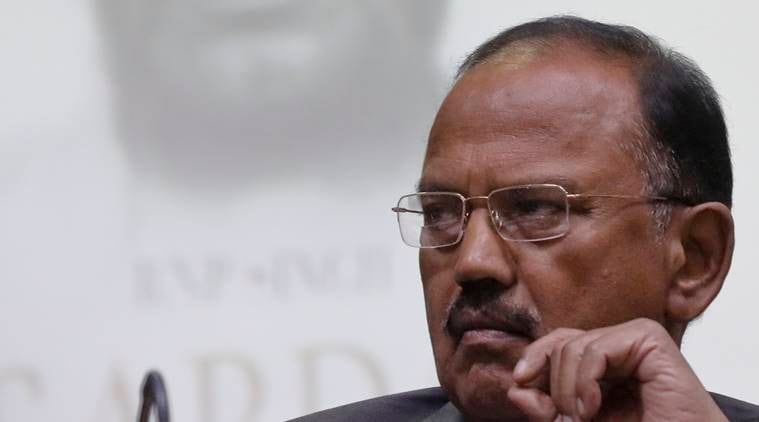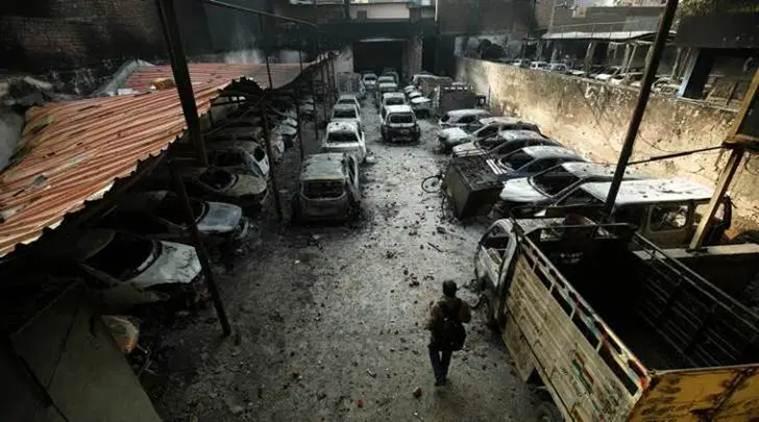 Doval called for use of technology to manufacture this perception and “contacts” to popularise it.
Doval called for use of technology to manufacture this perception and “contacts” to popularise it.
Highlighting the importance of a police force, National Security Advisor (NSA) Ajit Doval Thursday said they are the enforcers of the law and “if they fail, democracy fails”.
“Law making is the most sacrosanct job in a democracy. It is done by the representative of the people. You are the enforcers of that law. If you fail, democracy fails. If you are not able to enforce the law, then making of that law is immaterial. A law is as good as it is executed on the ground,” said Doval, speaking at the Young Superintendent of Police two-day conference organised in Gurgaon.
The NSA’s comments come in the wake of the Northeast Delhi riots, where the role of the police has been questioned.
He also said “perception management” is critical for police to attain “confidence” of people in a democracy and “enhance their trust”. “In a democracy, it is extremely important that you should not only be totally dedicated to the law… it is also important that it seems like that, you are credible… But then people will take one stray aberration somewhere, of some policeman having done something, and that will be the headline, and people think that probably he is the standard prototype. So, it is also our responsibility that we are able to create this right perception, because it is the perception that provides confidence to people, enhances trust… if they feel they have a police which is alert, efficient, honest, objective, professionally competent, and friendly,” said the NSA.
Doval called for use of technology to manufacture this perception and “contacts” to popularise it. He, however, said: “It should not be propagandist. it should be based on truth, so that over the years, the credibility of it is established.”
Attributing people’s lack of trust in the police to historical events, Doval said society being “enslaved” for a long time has led to a “contempt” for those in authority, of which, as an “instrument of the government”, the police force is also one.
 Vehicles torched during violence in Mustafabad. (Express photo by Praveen Khanna/File Photo)
Vehicles torched during violence in Mustafabad. (Express photo by Praveen Khanna/File Photo)
“… Since it is a mindset that the man who enforces the law is a ruler and we are the ruled, that gives them a certain amount of aversion; it takes a form of resistance and that resistance leads to police vehicles being set on fire… they do not know that they have paid for it… the police vehicles that you are burning today is actually your own money… it is not getting deducted from salaries of policemen, only taxes are going to be enhanced,” said Doval.
“How do we bring about societal change where people feel that police is for them? Can technology enhance that process and if it can, please try for that. Who are the people who are most neglected… who feel there is a lack of safety for them? How can you disabuse them of these impressions and thoughts? Technology can be a very important tool in bringing about that,” he said.
Pointing out that India is “a country that has the technology to hit at a satellite with an anti-satellite, has plans to go to the moon… that still, the same country does not have adequate technology for policing in a village- or kasba-level”, Doval said there is a need to ascertain where that gap lies.
Among other dignitaries present were Haryana DGP Manoj Yadav, President of the Federation of Indian Chambers of Commerce and Industry (FICCI) Sangita Reddy and Director General of the Bureau of Police Research and Development V S K Kaumudi.